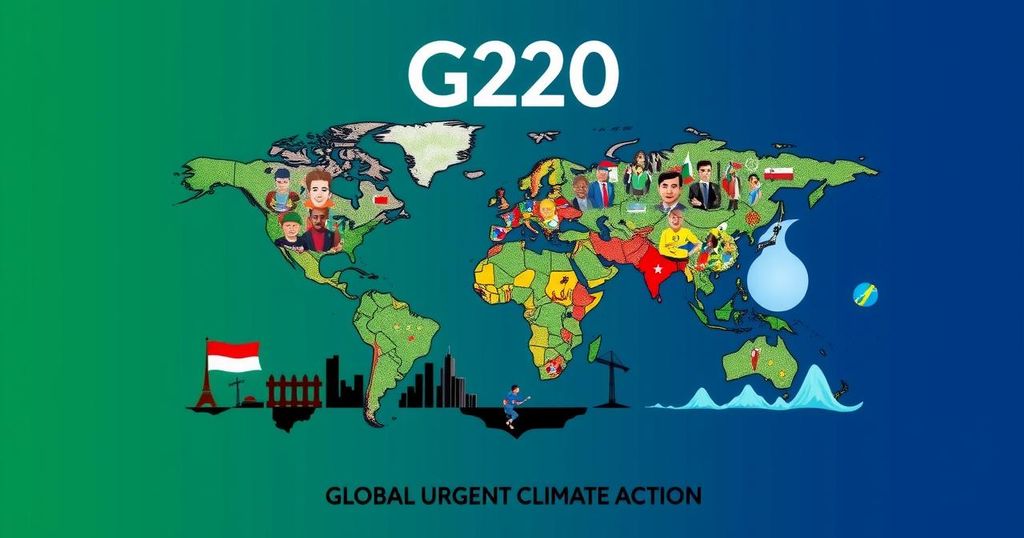During the G20 Brasil Leaders’ Summit, President Lula emphasized the urgent need for action on climate change, stating that COP30 represents a final opportunity to prevent irreversible damage to the climate system. His proposals included accountability measures for developed nations, the creation of a UN Climate Change Council, and recognition of indigenous peoples’ roles in environmental conservation. The Leaders’ Declaration reflected strong commitments to sustainable development and social equity, promoting a comprehensive approach to global challenges.
During the final thematic session of the G20 Brasil Leaders’ Summit, President Luiz Inácio Lula da Silva articulated urgent calls for action against the climate crisis, stressing that “COP30 will be our last chance to avoid an irreversible rupture in the climate system.” His speech on November 19 focused on crucial issues such as climate action, energy transitions, and sustainable development, with particular emphasis on the responsibilities of developed nations. Highlighting the importance of integrating indigenous and traditional communities in climate preservation efforts, President Lula proposed a UN Climate Change Council to unify fragmented global initiatives. This call for accountability aligns with the Brazilian presidency’s advocacy for the Global South, urging developed nations to accelerate their climate neutrality targets from 2050 to 2040 or 2045. He stated, “Without assuming their historical responsibilities, rich nations will not have the credibility to demand ambition from others.” In conjunction with the G20 Leaders’ Declaration, approved on November 18, substantial commitments were made, emphasizing the necessity for immediate action in combating climate change. The Declaration stresses support for sustainable development and equitable energy transitions, particularly focusing on vulnerable populations. Notable advancements in recognizing the critical role of indigenous peoples in forestry and addressing funding discrepancies for energy transitions were also included, underscoring the importance of financial support for developing nations striving for low-carbon economies. Additionally, the Declaration encompasses broader social commitments, such as the Global Alliance Against Hunger and Poverty, and the promotion of racial equality, illustrating the G20’s comprehensive approach to global challenges. Lula’s initiatives and proposals signal a pivotal moment for international cooperation on climate policy, thrusting Brazil into a leading role in the upcoming climate negotiations.
The G20 Brasil Leaders’ Summit, which took place in November 2023, served as a platform for global leaders to address pressing issues such as climate change, social equity, and economic reforms. With Brazil’s leadership under President Lula, the summit aimed to forge collective responses to these challenges, particularly highlighting the responsibilities of wealthier nations towards developing countries in the fight against climate change. This context sets the stage for Lula’s numerous proposals including the establishment of a UN Climate Change Council and the emphasis on indigenous communities’ roles in environmental conservation, which were focal points in his addresses to the summit.
In conclusion, President Lula’s address at the G20 Brasil Leaders’ Summit encapsulates the urgent need for unified global action on climate change, strongly appealing to developed nations to enhance their commitments. The approved Leaders’ Declaration reflects a collective understanding of the challenges posed by climate change, including provisions for supporting vulnerable populations and recognizing indigenous contributions to environmental sustainability. The emphasis on accountability and financial equity signals a critical step towards achieving sustainable development goals in a just manner.
Original Source: www.g20.org






